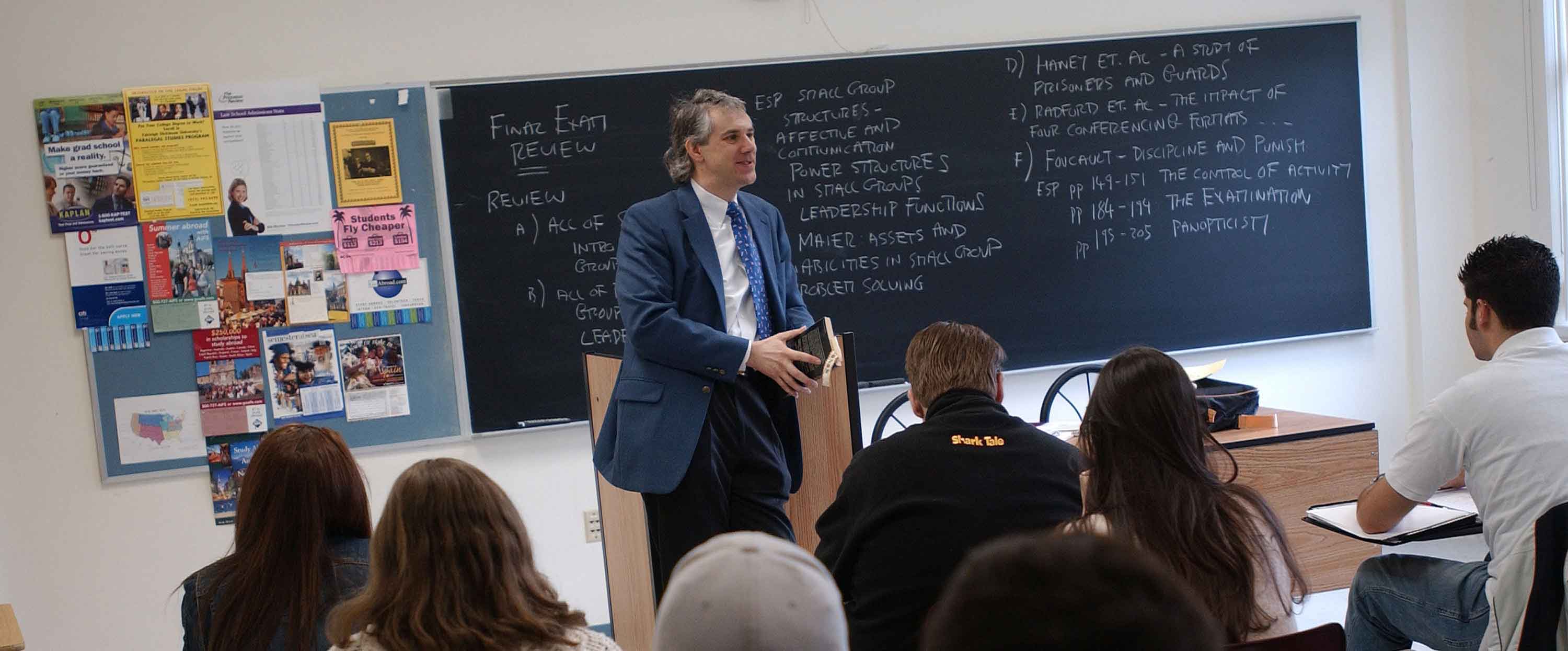|

Fairleigh Dickinson University Website, May 2005

Gary Radford receives high marks from students at the College at Florham. The popular communication studies professor joined the University faculty in 1999. By 2003,
he had been honored as the Becton College and the EOF (Equal Opportunity Fund) Teacher of the Year.
Students applaud Dr. Radford's courses. On an Internet Web site rating faculty, student reaction ranges from "fun professor, nice British accent, super nice" to "very helpful, very interested and involved."
In addition to his work in the classroom, Dr. Radford also directs the University's graduate program in corporate and organizational communication.
A native of Nottinghamshire, England, he received his bachelor's degree in the United Kingdom and his graduate degrees in the United States. He earned his Ph.D. at Rutgers University.
Dr. Radford's research focuses on the philosophical and critical treatments of communication processes, drawing widely from the work of Michel Foucault.
He is very interested in subliminal persuasion - persuasion by messages presented below the level of conscious awareness.
As a hobby, he plays a blazing lead guitar in a blues/rock band.
Dr. Radford serves as the editor of The Atlantic Journal of Communication, an academic publication concerned with the study of communication theory, practice and policy.
At FDU, the popular professor teaches corporate communication, communication theory, literary and communication theory, research methods, interpersonal communication,
small group communication, images of communication in science fiction film, language and communication, and introduction to communication studies.
Wadsworth Press published Dr. Radford's latest book, "On the Philosophy of Communication," in 2004. He is also the author of "On Eco."
In Professor Radford's Own Words:
On teaching at FDU: "I pride myself on getting to know each of my students on a personal level.
Communication research states that the most effective communication is that which takes place in a face-to-face and personal manner,
recognizing and valuing the unique aspects of each individual. I try to bring this insight to all of my interactions with the students,
both inside the classroom and outside."
On current research and interests: "Communication theory is a raging battlefield in the United States,
and it is wonderful to be in the middle of it. Dominant Anglo/American models of communication, based in technology metaphors, are slowly being
challenged by European models of communication, based in metaphors of art and culture.
The Anglo/Americans are obsessed with the transmission of messages: how can I send a message further, more quickly, and with the most effectiveness?
We have all grown up with a view of communication that turns us all into receivers, essentially machines that process messages. I want to expose students to
European theories of communication that recognize the value of human beings, not as receivers or targets, but as people that play an active role in the
communication process.
I want to show students that communication always takes place in the context of human relationships, and that meaning is always something that
is created by people in unique ways, and not simply transmitted to us by some anonymous sender. Students resist me at first. After all, they want to
go into communication professions such as advertising and PR which absolutely depend on Anglo/American conceptions of communication.
But, sooner or later, they come around to my way of thinking that the Europeans explain communication much better."
To learn more about my approach to teaching and thinking about communication, please listen to this
interview I gave to Stuart Campbell on his radio show "Consider This." The interview was broadcast on August 17, 2012 on
KZYX Mendocino County Public Broadcasting, 90.7 Philo, 91.5 Willits and Ukiah, and 88.1 Fort Bragg.
|